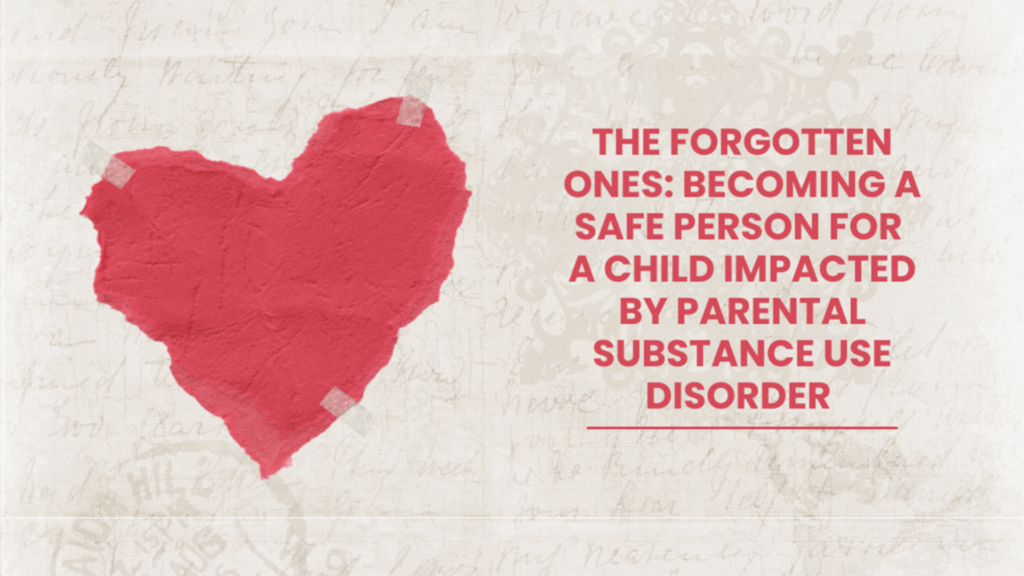In families where substance use disorder is present, children are often the ones most affected — and yet, they are too often the last to be helped.
While the adult’sut in the excitement, there’s also a very real risk that some teens will feel pressure to celebrate in dangerous or harmful ways—by trying or regularly using alcohol, vaping, THC edibles, or other substances. These aren’t just bad choices. They’re risky ones that can have life-altering consequences: overdoses, accidents, DUI charges, sexual assault, or even death.
For teens from families impacted by substance use disorders, the stakes can feel even higher.
Why Children Are So Vulnerable
Children growing up with a parent who struggles with the disease of addiction live in homes where emotional neglect, inconsistency, or trauma may be part of daily life. Their needs — safety, comfort, validation — are often unmet. And because children naturally blame themselves for the chaos around them, they may internalize shame, believing “I must be the problem.”
That’s why NACoA exists: to remind the world that these children are not bad, not to blame, and never alone — and to empower adults everywhere to step in and be a source of healing.
It Only Takes One Safe Adult
One of the most powerful findings in trauma research — including the work of Dr. Bruce Perry and other experts — is this:
One consistent, caring adult can completely change a child’s life trajectory.
Even if we can’t “fix” the family situation, we can help that child feel seen, believed, and safe in our presence. Safe adults model regulation, boundaries, kindness, and emotional availability — often giving children their first taste of what trust can feel like.
You don’t need a special degree. You don’t need all the answers. You just need to show up with presence, patience, and compassion.
How to Be a Safe Person
Here are a few ways we can become that safe adult for a child impacted by parental addiction:
• Listen without judgment. Let them talk if they want to — or just be. Your non-anxious presence matters.
• Be consistent. Predictability builds trust, especially when a child’s home life feels unstable.
• Stay regulated. If you’re calm, the child feels safer. Your own healing work supports theirs.
• Validate their experience. Even if you can’t change their situation, being supportive helps them feel understood.
• Use empowering language. Remind them of NACoA’s core messages: You are not alone. You are not to blame. I’m here to support and help you
Our Ask of You…
Whether you’re a teacher, coach, neighbor, recovery professional, or simply someone who cares — you can make a difference!
Children impacted by the disease of addiction need more than programs. They need people. They need you. Learn how to become a safe adult and access tools to support children impacted by family addiction. Explore our website, especially our resources and blogs, to learn more.
Every act of kindness plants a seed of resilience. Together, we can help these children not just survive — but thrive.
Resources you can refer to: Children's Programs that Help
If you’re looking for trusted, age-appropriate healing programs for children ages 7–12 impacted by parental SUD’s, here are some valuable programs:
- Hazelden Betty Ford Children’s Program – Locations in California and Minnesota
- Caron Foundation Children and Teen Programs – Pennsylvania
- Hanley Foundation Prevention Programs for Youth – Florida
- Henry Ford Health – Brighton Center for Recovery – Michigan
- Camp Mariposa – Locations around the country
- COASA – Boston, MA
These programs provide safe, supportive environments where children can learn, heal, and connect with other children — often for the first time — with others who truly understand this disease and know how to help children heal.
If you are aware of other programs that support children impacted by addiction, please share them with us.
